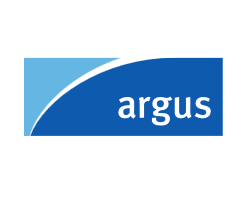Brazil Mulls Low-Vol Options After Pinnacle Closure

November 6, 2018 - Brazilian steelmakers are progressing with talks for 2019 low-volatile coking coal supply, with the loss of the US' Pinnacle mine supply opening up new avenues for discussion and the potential for some seaborne material to be redirected.
Some Brazilian buyers were seen entering into 2019 discussions for low-volatile coking coal back in September, moving early in some cases because of strong competition for US coking coal and the pending closure of the Pinnacle coking coal mine in West Virginia. Some buyers were looking to secure more low-volatile material on term contracts this time around to limit their exposure to a potentially tighter US spot market in 2019, a Brazilian market participant said.
The Pinnacle mine's closure in mid-October — which preceded a Chapter 11 filing by owner Mission Coal and 10 of its affiliates — has removed 2.7mn short tons/yr (2.45mn t/yr) of low-volatile hard coking coal production capacity from the market.
Pinnacle produced just over 1mn st in January-September, before being classified as non-producing by the US Mine Safety and Health Administration (MSHA) on 5 October. The Oak Grove mine, which Mission also operated, produced almost 1.1mn st of low-volatile coking coal in January-September, MSHA data show.
Various discussions are now under way to fill the resulting gap in Brazil's low-volatile market, with several US exporters understood to be keen to snap up extra business. Some remaining Brazilian 2019 requests for proposals (RFPs) are expected to emerge in the coming weeks, while others will be structured around the 2019-20 fiscal year beginning on 1 April.
There are limited options in terms of which US coals would be a suitable replacement for Pinnacle material. The market is speculating on the potential of certain brands — such as Buchanan or various Pocahontas seam coals — but it remains to be seen if deals will emerge.
A West Virginia-based producer was seen responding to a South American request for 40,000t of low-volatile coking coal just a week after Mission warned in August that the Pinnacle mine may close — an RFP that was directly linked to the Pinnacle situation, according to a market participant involved in the discussion. No deal was done on that occasion.
Potential for Backhaul Cargoes
There is also potential for Brazil to turn to Australia to help fill the low-volatile supply gap. "There is still quite a lot of potential for Brazilians looking to backhaul," a US trader said, pointing to favourable freight rates available on vessels making the return journey from Asia-Pacific to Brazil after delivering iron ore.
Backhaul cargoes for Capesize vessels are often booked at relatively low rates as shipowners are already moving their empty vessels to Brazil from the Pacific basin to pick up lucrative Brazil-to-China iron ore cargoes. Shipowners will often carry an Australia-to-Rotterdam or an Australia-to-Brazil cargo well below the comparable fronthaul route from Brazil to China.
An Australia-to-Rotterdam voyage is priced around $14.50/t, while from Brazil to China it is around $20.75/t. This rate would almost be low enough to compete with a standard transatlantic cargo, which is currently costs under $10/t. This dynamic could help Australian coking coal producers compete with Atlantic-based suppliers, although their fob price would likely still have to be slightly below an Atlantic producer's.
But this dynamic is not as pronounced in the Panamax market, where there are other cargoes competing for Pacific-to-Atlantic journeys. A backhaul voyage between Australia and Brazil would still cost less than its fronthaul counterpart, but it would be significantly higher than a transatlantic cargo and make it more difficult for Australian charterers to compete.
Fronthaul and backhaul routes are nevertheless relatively busy and charterers could instead focus on long-term deals or contracts of affreightment (COAs) to keep their freight costs low. Capesize and Panamax rates can experience strong seasonal spikes, which can be avoided with long-term contracts.
Australia-to-Brazil trade is already relatively active, with at least 24 ships laden with coal sailing on the route since June. This consisted of four Capesize vessels sent to Praia Mole and 20 Panamaxes to Praia Mole, Tubarao, Pecem and other ports.
Redirection of Seaborne Low-Vol Coal
But for many market participants, the US is the most likely option for Brazilian mills given its proximity and price. The Argus weekly fob Hampton Roads assessment for low-volatile coking coal averaged $176.80/t in the third quarter, while the daily fob Australia assessment for premium hard low-volatile coking coal averaged $189.79/t.
The US exported 1.68mn t (1.85mn st) of hard coking coal to Brazil in July-September, while Australia shipped 592,500 t, according to trade data. But the US supply-demand balance is so tight that finding extra low-volatile material for Brazil is not straightforward — even with some extra tonnes freed up by the loss of China as a target market because of tariffs.
What may follow is a redirection of seaborne material, as some US low-volatile coal is diverted from lower-paying markets to Brazil. "Brazilian steelmakers will want to secure more of the US low-vol supply at the expense of India, which would push its mills to take more supply from Australia and Mozambique," a seaborne supplier said.
Such a shift would be welcomed by some market participants, who have voiced concerns about whether the growing presence of US coking coal in India may eat into Australia's market share. But others argue that Indian steelmakers are unlikely to ever substantially reduce their use of Australian coals owing to their high specifications.
Mozambican low-volatile coking coal itself is not expected to compete for additional Brazilian business because it typically has a coke strength after reaction (CSR) rating of 75, while Brazilian mills favour low-volatile coal with a CSR of around 64, a market participant said. Brazil imports less than 1mn t/yr of Mozambican coal at current rates.

